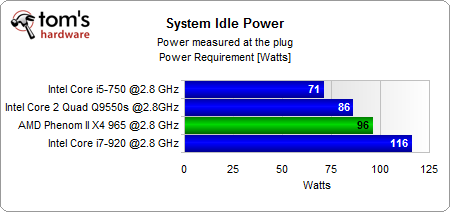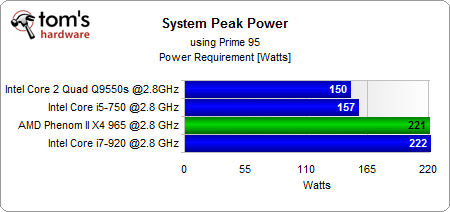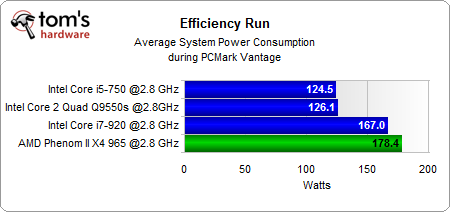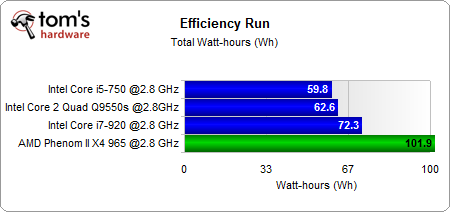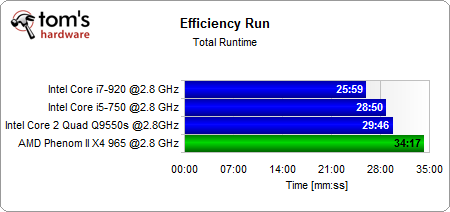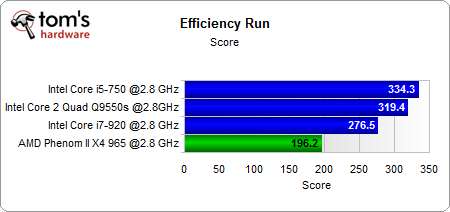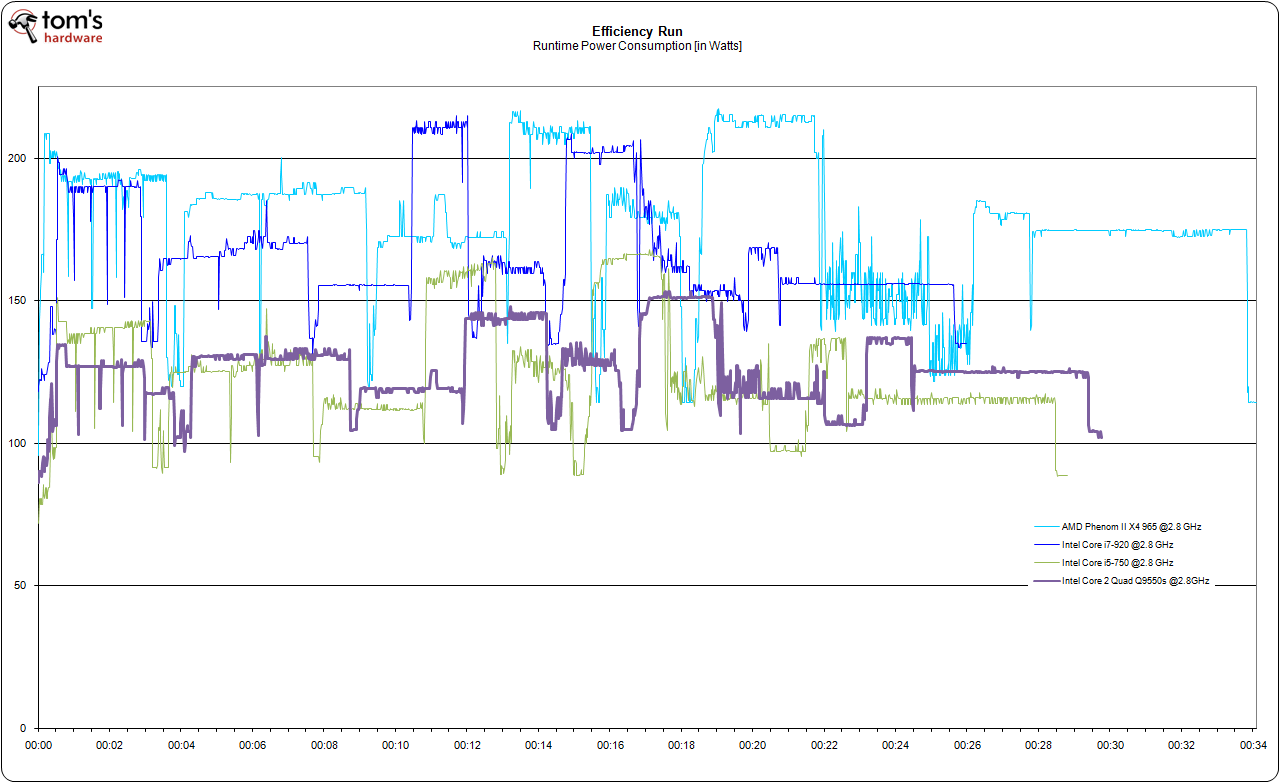Experiment: Comparing Four Quad-Core Architectures At 2.8 GHz
Benchmark Results: Power And Efficiency
System Power Consumption
These are impressive results: Intel’s new Core i5-750 has significantly less total system idle power than the power-optimized Core 2 Quad S model. AMD’s Phenom II X4 follows. The Core i7-920 is most power hungry, partly because of its complex three-chip platform (versus Lynnfield's two-chip design).
The peak power results at 2.8 GHz are interesting as well. Core i7 and Phenom II X4 require almost exactly the same power at peak load on our test system, while Core 2 Quad S and Core i5 are very close to each other again. Looking at the fact that the performance differences aren’t as huge as the power gap it is obvious that neither the AMD Phenom II X4 nor the Intel Core i7 on LGA 1366 will be anywhere close to winning the efficiency shootout.
Efficiency
Average power for the processors was more similar than in the peak power test. Core i5 and Core 2 Quad S go head to head, while Core i7 and Phenom II X4 are comparable, as well.
The total power used to complete a full efficiency run also depends on performance, as the fast systems may return to an idle state much quicker and therefore reduce power consumption. This is the case for the Core i7-920, which required much less power for this workload than the AMD Phenom II X4. Core i5 and Core 2 Quad S are even lower on power. Let’s look at runtime and relate power and runtime.
This is the performance ranking: Core i7 is fastest followed by Core i5 and Core 2 Quad S. AMD takes the last place.
Get Tom's Hardware's best news and in-depth reviews, straight to your inbox.
Here is what happens if we relate performance to power used. Core i5 delivers the second highest performance at the lowest power consumption, so it takes the lead on overall efficiency. Core 2 Quad S does well here for the same reasons. Unfortunately, AMD fares poorly again. It doesn’t stand a chance against the Core i5/i7 family, requiring more power to tackle given workloads.
Current page: Benchmark Results: Power And Efficiency
Prev Page Benchmark Results: Games And 3DMark Next Page Conclusion